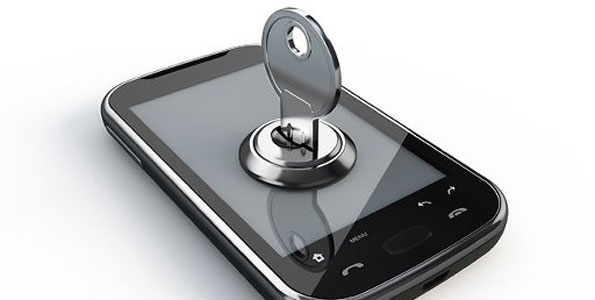Secret, anonymous messages aren’t just for the dastardly. Luckily, a little privacy isn’t difficult to get. With some effort and a spare phone, you’ll be whistleblowing, protecting your privacy from harassers, and staying anonymous when selling on Craigslist or looking for dates on Match. Here’s how.
This post is part of our Evil Week series at Lifehacker, where we look at the dark side of getting things done. Sometimes evil is justified, and other times, knowing evil means knowing how to beat it. Want more? Check out our evil week tag page.
That’s right; we’re building a “ghost phone.” A device you can use to generate a phone number and send completely anonymous texts. Our “ghost phone” works best over Wi-Fi, preferably not your Wi-Fi, so you can stay untraceable. There are ways to use cellular data here too, especially with a VPN (which we’ll talk about later), but if you want to be really untraceable, Wi-Fi is the way to go.
Of course, when we talk about who needs something like this, the people that probably jump to mind probably aren’t very nice. Remember though, not everyone with something important to say is willing to say it publicly.
Whistleblowers and activists are some good and noble examples of people whose privacy we want to protect, but it’s handy for everyday life, too. Think about how handy it’d be to have a “ghost phone” to sell stuff over Craigslist. Or maybe you’d rather use your “ghost phone” to screen your online dates. Maybe you just want to prank your friends. Maybe you’re an activist, and record street harassment, violence, or protests, and want to make your information public as soon as possible—but without being immediately traceable. If any of those sound like you, this is a worthwhile project.
What You’ll Need
Before we begin, there are a few things you’ll need:
- An old or spare smartphone (iOS or Android). You could do this with your normal, everyday phone, but the goal here is to be as untraceable as possible, and your real phone carries and leaks a ton of data about you, where you go, and what you do. The disposability of an old device that’s doing nothing but acting as a ghost texting phone is important here. Plus, worst case you can always wipe it or toss it, no harm no foul.
- Hushed, an app that can generate disposable numbers for calls and texts, and then send texts over Wi-Fi from behind that number.
- A free, no-login VPN like Cyberghost or Hideman to encrypt your texts and anonymize your location (especially useful if you’re stuck using your own Wi-Fi.)
- A good Wi-Fi connection, or several—you don’t want to use your own Wi-Fi network if you want to be untraceable. Choose a coffee shop or library’s free Wi-Fi instead, and make sure you only use it while your VPN is up and connected.
We’re recommending Hushed here, but Burner, another app we’ve covered, is an alternative. However, it doesn’t have the same free trial or pay-as-you-go plans. It’s designed for people who are more concerned with maintaining those disposable numbers than staying totally anonymous. Google Voice is another option, but then you have to use a Google account (pretty much the opposite of “untraceable,” even if you use a dummy account, since you’ll need to use it repeatedly) and you only get one number to call or text from. It’s free though, which is nice. If you’re going to be doing this a lot, maybe look into the alternatives, but if your primary concerns are disposability and anonymity, stick with Hushed.
Also, when it comes to free VPNs, keep in mind that both of the services we’re recommending here reserve their best, fastest, and most reliable VPNs for paying customers—which, means you might get connection drops, lags or delays in message delivery, and so on. When I set this up myself, I had great luck with CyberGhost for a while, and then the connection dropped, so it was great to have HIdeman to switch over to, and vice versa. If you’re willing to put down money, both CyberGhost and Hideman allow you to pay using Bitcoin, so you can get more time and better connection options without leaving a paper trail for someone to find.
Sound good? Here’s how you’ll set everything up.
How to Install and Configure Hushed
We’re recommending Hushed for your anonymous, disposable phone number. You can choose a number in over 40 countries, and they have a great free trial: You get 10 texts and 10 minutes of calls for free from your first disposable number. Your free trial number has to be in North America, but for as low as $2, you can reserve a number in any of those 40 countries for a week and get 60 texts to send. $4 lets you keep the number for a month and gives you 150 texts. There’s even a $2 pay-as-you-go option so you only pay for the texts you actually send with your ghost phone.
Installing Hushed is as easy as grabbing it from Google Play or the iTunes App Store. If you really really want to make sure you’re as anonymous as possible, create a dummy email or Google account to use at Google Play or iTunes just to install the app. You could also use previously mentioned APK Downloader to get the installer package and sideload it onto your Android phone. There are ways to sideload apps onto an iOS device too, but they’re a more trouble than they’re worth—just use a dummy Apple ID.
From there, setup is easy. Hushed uses an email address and a password you create after installing, but they don’t verify email addresses. They don’t even have a record of whether the address is real or not. That means you can even use a fake account if you want (or use that dummy account we mentioned earlier,) and any password you like. Just remember that email and password so you can use the app again if you ever get logged out. Now you’re ready to send some totally private, anonymous texts.
Tap the menu icon on the left side of the screen to slide out the sidebar. From there, you can tap your trial number to send a couple of text messages to unwitting testers—or just get your anonymous messages out of the way. Hushed supports text and picture messages, as well as voice calls over Wi-Fi. If you want to extend a number or get a new number on your current account, just tap the appropriate button at the bottom of the left sidebar (“get number” or “get credits”) to do so—but like we mentioned, you’ll need to pay via in-app purchase in Google Play or iTunes, and that makes you traceable (unless you buy gift cards using Bitcoin and use that dummy email address we mentioned!)
Secure Your Anonymous Calls and Texts with a Mobile VPN
By default, there’s no encryption on calls or texts, which means they’re sent in the clear, where anyone can intercept them, read them, or use them to work backwards to who sent them and where they were sent from. That’s where a good mobile VPN comes in. If for some reason someone intercepted your communications, you’d look like you were at the location of the VPN server—not the actual IP address of your whatever Wi-Fi network you’re actually using, like the library or coffee shop down the block.
Both CyberGhost or Hideman add a cozy wrapper of encryption to all of the data leaving your ghost phone. Plus, since the goal here is to be largely untraceable, both VPNs offer your choice of VPN server in multiple countries. They don’t require an account to use, either, which is perfect.
- First, install your VPN of choice from iTunes or Google Play. Like we mentioned earlier, either will do, but it’s nice to have a backup in case one lags or disconnects.
- Choose a location to connect to. Nearby servers will offer more speed and reliability, but make it easier to figure out where you really are. Faraway servers make it tougher to track you down, but connectivity will suffer.
- Once you’ve selected one, click “Connect.” You’ll be prompted to allow the VPN to monitor all of your network traffic (which it needs to in order to work, so click “Trust” or “Accept,” whichever you’re prompted to say. Now sit tight, this might take a while, depending on network traffic, or how popular that server is.
- Once you’re connected, head back to Hushed, and start sending your messages. Anything you say now is encrypted, which means it’s hidden not just from prying eyes on whatever Wi-Fi network you’re using, but between you and your recipient (or at least, until it passes through your VPN, which is all that matters!)
Understand the Limitations of This Project
Your ghost phone is now ready: your connection is encrypted and anonymized, and you’re sending text and picture messages from a burner phone number that has no ties to you personally. Your phone does have limitations that you should be aware of, though. For example:
- This will not protect you from Notoriously Strong Adversaries. Make no mistake, good encryption, a VPN, a burner number, and a disposable secondary device certainly make you more difficult to pin down. However, agencies conducting real investigations have the tools and capability to dive deeper than you can protect against. They can also request information from these services that may not reveal your messages or the device you use, but other useful data, like your ISP, which Wi-Fi network you use, even if it’s not yours, when you log in, and all of those other little tidbits that let you betray who you really are, without anyone having to actually crack anything. In short, don’t be stupid.
- Putting down money and using real accounts makes you traceable. We touched on this earlier, but any time you spend money or log in using your real account at Google Play or iTunes, you’re leaving bread crumbs behind that make you easy to spot. This is also why Google Voice is a bad idea for this particular use case. I’m not saying this because I think the friend you’re going to prank is going to subpoena Google or Apple, but so you don’t think those little things won’t betray you too. If you open your wallet and use a credit or debit card to buy a Hushed number or get a Hideman premium account? You can bet that even if Hushed or Hideman doesn’t keep that data, your bank does, and will turn it over to the right people. You could use Bitcoin, but you have to buy the Bitcoin somehow, right? Same problem.
Like we said—this is great for when you need to cloak yourself or your communications, get something sensitive to a third party quickly, protect your privacy from someone who’s technically competent, or just have a little fun with a friend who’s a good sport. It’s ideal when you don’t want to make that other person sign up for some bullshit ephemeral messaging app that promises “secure, self-destructing texts” and delivers nothing of the sort.
Even so, you’re not going to outsmart someone with more network security experience than you have, and you’re definitely not going to outsmart a talented investigator with social engineering experience. As always, use your evil powers for good—or at least wisely.
Title image made using olegganko (Shutterstock).

